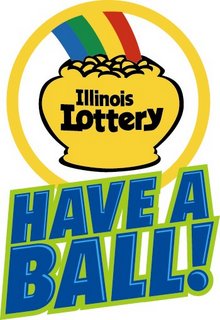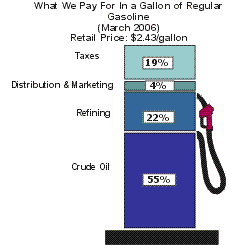 Why can't we fund the student instead of the educational bureaucracy? Lidia Downs of the Family Taxpayers Foundation in a current editorial letter brings the bony finger of indignation to bear on the Illinois legislature and Illinois Education:
Why can't we fund the student instead of the educational bureaucracy? Lidia Downs of the Family Taxpayers Foundation in a current editorial letter brings the bony finger of indignation to bear on the Illinois legislature and Illinois Education:The fact is that public schools are like other monopolies - they squander money.Their newest ploy is this so-called “tax swap” which would raise both individual and corporate state income taxes by 67% in exchange for a promise of temporary property tax relief, which they can’t guarantee. Under this bill, 6¼ % sales tax would also get applied to such services as movie tickets, hair salons, parking, golf courses, car repairs and more. The result would be about $6 billion more for state government, plus less local control of our schools. A better name for this bill would be a “tax swindle!”
The real test for state leaders AND for education bureaucrats is to find solutions like charter schools, virtual schools, and opportunity scholarships, that have actually been proven to result in vastly improved academic achievement. It’s time we funded the student instead of the system.
When is a voucher not a voucher? When is is for college! The Heritage Foundation's Dan Lips
points out:
When the scholarship is for higher education, rather than for elementary, junior, or high school. Pell Grants, the G.I. Bill, and Hope Scholarships--all essentially vouchers--earn wholehearted support from liberals who demonize "vouchers."Mr. Lips continues,
Pell Grants, the G.I. Bill, "Lifetime Learning" tax credits, and college scholarships are all school choice initiatives. Why is ok for some age students and not for others?
President Clinton embodies Democrats' strange position on school vouchers. In 1998, he vetoed bipartisan legislation that would have provided school vouchers to 2,000 low-income children in Washington, D.C., calling the plan "fundamentally misguided." But just a year earlier, he signed a tax package that included the Hope Scholarship and Lifetime Learning tax credits. At the time, those tax subsidies were projected to help 13 million Americans enroll in a postsecondary institution of their choice after high school.
There is no magic reform proposal that will fix all of the failures of our K-12 system. That’s why it's important to shift the focus from the system to the student. Students have diverse needs, and there are many schools that could meet those needs, including private schools.
That's why school choice programs, including vouchers, hold great promise and promote equal opportunity. Like Pell grants, existing school voucher programs in Cleveland, Milwaukee, and Washington, D.C., are structured to give disadvantaged families the same opportunity that more affluent families already have -- the ability to enroll their children in safe and high quality schools.
Say no to the "Tax Swipe" and yes to school choice. Let's fund the kids and not the system.




